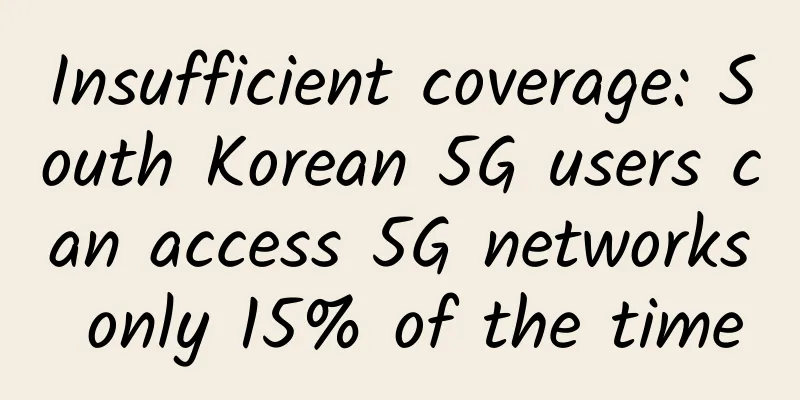Operators remove many 4G packages to make way for 5G, user experience may be affected

|
Recently, China Mobile's online business halls and apps in many regions no longer provide users with preferential 4G packages. Users can only choose relatively high-priced 5G packages when applying for packages. In response, China Mobile customer service staff told reporters that users can go to offline business halls to apply for 4G packages.
At the same time, the reporter found that China Unicom and China Telecom also have similar situations. In fact, for most mobile users, 4G packages can basically meet daily needs. Now it seems that under the 5G wave, the types of 4G packages that users can choose are gradually decreasing, and the channels for handling them are also narrowing. Obviously, this is related to the operators' vigorous promotion of 5G packages. However, this way of promoting 5G packages has, to some extent, deprived users of their right to choose independently, making them bear higher monthly fees, which is suspected of cost grafting. So, does this method infringe on the rights of consumers? In this regard, a lawyer analyzed that the operator's practice is mainly a commercial behavior. From a legal perspective, it does not infringe on the rights of users, but it may affect the user experience. Independent telecom analyst Fu Liang also said that the current 5G packages launched by operators are relatively expensive and do not take into account the needs of low-consumption groups. He expects that in the fourth quarter, operators will make breakthroughs in the flexibility of 5G packages and launch low-priced 5G packages to attract more users. The three major operators have removed a number of 4G packages from their shelves, possibly making way for high-priced 5G packages Recently, Ms. Liu from Shandong Province wanted to change her mobile Internet package because her mobile Internet traffic could not meet her daily needs. Considering that she could not return to her hometown for work, Ms. Liu looked for a suitable package on the official website and APP of Shandong Mobile. But after a careful inquiry, Ms. Liu found that she could only change to a 5G package online, and the package fee was as low as 128 yuan per month, while the relatively cost-effective 4G packages had all been removed from the shelves. In contrast, Ms. Liu's current package fee was only 19 yuan per month. Faced with such a sudden "rise" in package prices, Ms. Liu finally gave up the idea of changing packages. This is not an isolated case. Many netizens have reported similar situations on the Internet. After browsing China Mobile's online business halls and apps in various regions, the reporter found that, except for Shandong, China Mobile has removed 4G packages in many regions. If users change packages or apply for new numbers, they can only choose relatively expensive 5G packages. In areas where 4G packages have not been removed, the types of packages and options are also greatly reduced. The reporter called Shandong Mobile as a user, and the customer service staff said that the 4G packages have indeed been removed from the official website and APP. Users can only apply for 5G packages if they want to change packages or apply for new numbers. However, the customer service staff also said that 4G packages are still available in offline mobile business halls, and users can go to offline to apply for them. Customer service staff in Shanghai and other regions also gave basically the same response. In addition to China Mobile, the reporter saw on the official websites and apps of China Unicom and China Telecom that although 4G packages are still available in most areas, the types of packages have been greatly reduced. Currently, all operators are mainly promoting 5G packages. Many users told reporters that 4G packages can meet daily needs, and 5G packages are relatively expensive and cannot be used for the time being. On the Internet, there are many netizens who hold the same view. Some lawyers said that the practice of operators removing 4G packages from the shelves is mainly a commercial behavior. From a legal perspective, it does not infringe on the rights of users, but it may affect the user experience. On September 1, the "2020 China 5G Mobile Internet User Experience and Attitude Survey Report" released by iMedia Consulting believes that the current 5G era lacks innovative application products for individual consumers, and 4G networks can still meet the basic needs of users, and the advantages of 5G are difficult to reflect. The report also believes that operators charge high prices for 5G mobile communication packages, and 49.2% of the surveyed 5G mobile phone users believe that the current expensive package prices are the biggest problem. Independent telecom analyst Fu Liang also said that at the same price, 5G packages include more voice and data than 4G packages, but the 5G packages currently launched by operators are relatively expensive and do not take into account the needs of low-consumption groups. 5G network construction requires huge investment, and there is little room for package rates to fall In fact, one of the important reasons behind the three major operators reducing the types of 4G packages, narrowing the application channels, and vigorously promoting 5G packages is that the three major operators are facing pressure in revenue and profit growth. In recent years, due to the disappearance of traffic dividends, intensified industry competition, and factors such as speed increase and fee reduction, the three major operators have faced stagnation or even decline in revenue and profit growth. Specifically, in the first half of this year, China Mobile's revenue was 389.9 billion yuan, a year-on-year increase of only 0.1%; China Telecom's revenue was 193.803 billion yuan, a year-on-year increase of 1.7%; China Unicom's revenue was 150.397 billion yuan, a year-on-year increase of 3.8%. In terms of profits, in the first half of this year, China Mobile achieved a net profit of 55.77 billion yuan, a year-on-year decrease of 0.5%; China Unicom's net profit was 3.344 billion yuan, a year-on-year increase of 10.9%; China Telecom's net profit was 13.949 billion yuan, a slight increase of 0.3% year-on-year. In addition, the three major telecom operators need to continue to invest huge amounts in 5G network construction. According to the 2019 financial reports of the three major operators, China Mobile, China Unicom and China Telecom invested more than 180 billion yuan in 5G in 2020. At the same time, according to the 2020 interim financial report, in the first half of this year, the three companies invested about 88 billion yuan in 5G; among them, China Mobile invested 55.2 billion yuan in 5G, China Unicom invested 12.6 billion yuan in 5G, and China Telecom invested 20.2 billion yuan in 5G. Dong Yunting, director of the Expert Committee of the China Electronics Information Industry Federation, once said, "The investment in 5G network deployment is about five times that of 4G. At that time, 4G was invested with more than 400 billion yuan, and the investment in 5G should be around 2 trillion yuan." In order to reduce the pressure of 5G investment, China Telecom and China Unicom started co-construction and sharing to reduce the cost of 5G construction. China Mobile, which has always been known for its "wealthy and powerful", also signed a 5G co-construction and sharing cooperation framework agreement with China Radio and Television to reduce the cost of 5G construction. In addition, the three major telecom operators also have high costs in maintaining 5G networks. Earlier, there was news that Luoyang Unicom shut down some ZTE 5G base stations during certain periods of the night to reduce electricity costs. Under such circumstances, industry insiders analyzed that although the public believes that 5G package charges are too high, since 5G network construction requires huge investment, there is actually little room for 5G package charges to fall. 5G mobile phones have dropped to less than 1,000 yuan, and industry insiders expect operators to launch low-priced 5G packages In recent years, the prices of 5G mobile phones have continued to decline, and almost all manufacturers and brands are competing to lower the price threshold of 5G mobile phones. On September 1 this year, realme released the realme V3 5G mobile phone, with a starting price of only 999 yuan, becoming the industry's first 5G mobile phone priced below 1,000 yuan. This indicates that the price of 5G mobile phones has fallen below the 1,000 yuan mark. As prices continue to fall, 5G mobile phones have gradually become the mainstream of the market. According to data released by the China Academy of Information and Communications Technology, in August this year, 16.17 million 5G mobile phones were shipped in the domestic market, accounting for 60.1% of mobile phone shipments in the same period. At the same time, the number of 5G users in China is also continuing to expand. According to statistics, the number of 5G users in China has exceeded 100 million. On September 17, Han Xia, director of the Information and Communications Administration of the Ministry of Industry and Information Technology, revealed that as of now, more than 500,000 5G base stations have been built across the country, and the number of 5G terminal connections has exceeded 100 million. By the end of this year, the number of 5G base stations will exceed 600,000, covering all cities at the prefecture level and above across the country; as of the end of August, the number of 5G users nationwide has exceeded 110 million, and the monthly user growth in recent months has exceeded 10 million. Since 5G was officially put into commercial use, the three major operators have launched various preferential activities to attract users. However, on the official websites and apps of the three major operators, the prices of 5G packages have not dropped significantly compared to the initial prices. It is generally believed in the industry that the reduction in the charges of operators' 5G packages will be an important trend. As early as April this year, Wen Ku, spokesman of the Ministry of Industry and Information Technology and director of the Information and Communications Development Department, said that the construction of 5G networks will continue to be accelerated, and telecom operators will be encouraged to gradually reduce traffic charges through optimizing package settings, purchase of mobile phones on credit and other measures to drive 5G consumption. An industry insider said that in the future, operators will still need to rely on the increase in user scale and the maturity of the entire 5G industry chain to reduce 5G network costs and provide users with more preferential 5G packages. Fu Liang also said that in fact, we are now in a transition period, and he believes that in the fourth quarter, operators will make breakthroughs in the flexibility of 5G packages and launch a new price service system. Under this system, both high-priced 5G packages and low-priced 5G packages are included to attract more users. |
>>: The number of 5G mobile phones will reach 250 million. Is this good news?
Recommend
“Double Eleven” flash sale strategy: Which is faster, 5G or Wi-Fi 6?
The second wave of "Double Eleven" is c...
TripodCloud: CN2 GIA high-bandwidth VPS hosting starting from $63/year, configuration doubles with three-year payment, optional large hard drive
The tribe began sharing about Yunding Network in ...
Nginx log analysis: writing shell scripts for comprehensive log statistics
Nginx is a high-performance HTTP and reverse prox...
What is missing from licensing 5G for commercial use?
On February 20, South Korea announced the officia...
The number of 5G package users exceeds 600 million, and the profits of the three major operators have skyrocketed. Is 5G starting to make money?
In June 2019, the four major operators obtained 5...
UFOVPS National Day promotion starts at 30% off, top up 200 yuan and get 20 yuan, Hong Kong CN2/Japan CN2 optional
UFOVPS is currently carrying out a National Day p...
10gbiz: Hong Kong CN2 GIA line VPS monthly payment starts from $2.75, Los Angeles CN2 GIA line VPS monthly payment starts from $2.36
10gbiz has released a new discount plan, offering...
Maxthon Hosting: 600 yuan/month Hong Kong Dedicated Server-E5-2630v2/16GB/480G SSD/2IP/CN2 GIA Line
The tribe has shared information about Aoyo Zhuji...
Application of load balancing technology in computing power network
Part 01, ECMP ECMP is a hop-by-hop, flow-based lo...
An article about Google Cherry IPU
[[431841]] I always thought it was a bit strange ...
gRPC services communicating through the Istio mesh
[[433796]] introduction This article verifies the...
The reality of "5G + Industrial Internet" still exists: people don't know how to use it, don't dare to use it, and can't afford it
"Industrial Internet" has been written ...
There are four misunderstandings about network intelligence
If you don't talk about AI after dinner, you ...
[6.18] 80VPS 50% off on all KVM/XEN, special KVM annual payment starting from 199 yuan, multiple computer rooms in Hong Kong/USA available
80VPS is a long-established Chinese hosting compa...
The Legend of Network Protocol (III): The Glorious Family Goes East and West
TCP/IP is the most widely used network protocol f...









